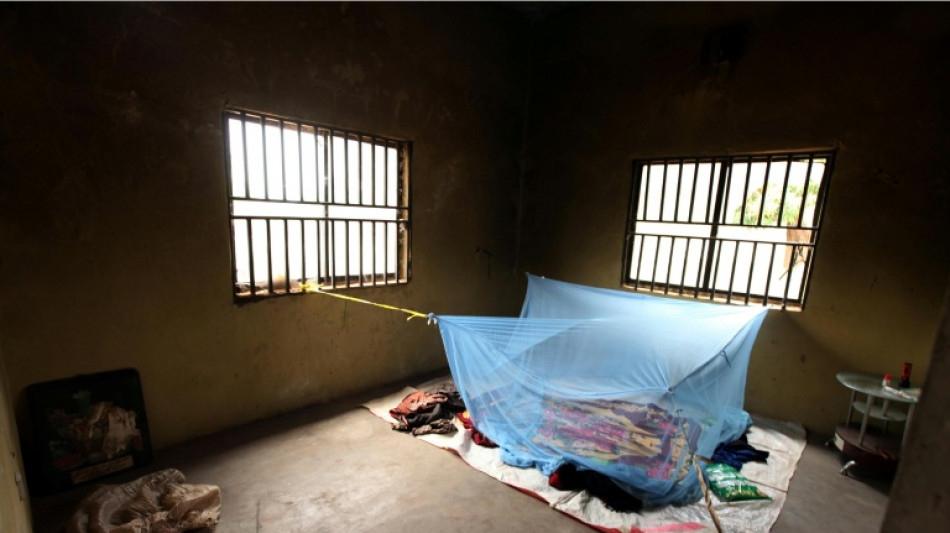
-
 Trump says comedian Colbert should be 'put to sleep'
Trump says comedian Colbert should be 'put to sleep'
-
Mahrez leads Algeria to AFCON cruise against Sudan

-
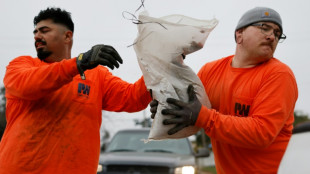 Southern California braces for devastating Christmas storm
Southern California braces for devastating Christmas storm
-
Amorim wants Man Utd players to cover 'irreplaceable' Fernandes

-
 First Bond game in a decade hit by two-month delay
First Bond game in a decade hit by two-month delay
-
Brazil's imprisoned Bolsonaro hospitalized ahead of surgery

-
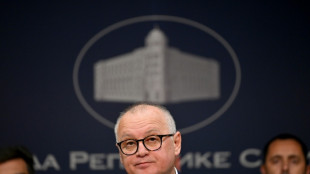 Serbia court drops case against ex-minister over train station disaster
Serbia court drops case against ex-minister over train station disaster
-
Investors watching for Santa rally in thin pre-Christmas trade

-
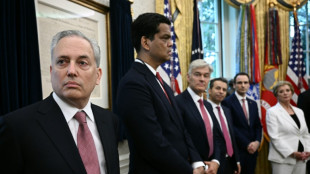 David Sacks: Trump's AI power broker
David Sacks: Trump's AI power broker
-
Delap and Estevao in line for Chelsea return against Aston Villa

-
 Why metal prices are soaring to record highs
Why metal prices are soaring to record highs
-
Stocks tepid in thin pre-Christmas trade

-
 UN experts slam US blockade on Venezuela
UN experts slam US blockade on Venezuela
-
Bethlehem celebrates first festive Christmas since Gaza war

-
 Set-piece weakness costing Liverpool dear, says Slot
Set-piece weakness costing Liverpool dear, says Slot
-
Two police killed in explosion in Moscow
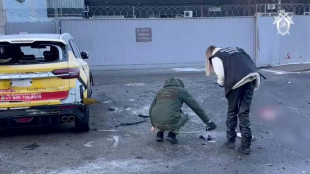
-
 EU 'strongly condemns' US sanctions against five Europeans
EU 'strongly condemns' US sanctions against five Europeans
-
Arsenal's Kepa Arrizabalaga eager for more League Cup heroics against Che;sea

-
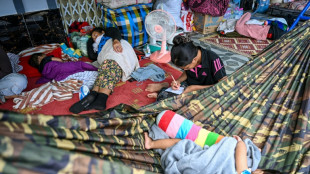 Thailand-Cambodia border talks proceed after venue row
Thailand-Cambodia border talks proceed after venue row
-
Kosovo, Serbia 'need to normalise' relations: Kosovo PM to AFP

-
 Newcastle boss Howe takes no comfort from recent Man Utd record
Newcastle boss Howe takes no comfort from recent Man Utd record
-
Frank warns squad to be 'grown-up' as Spurs players get Christmas Day off

-
 Rome pushes Meta to allow other AIs on WhatsApp
Rome pushes Meta to allow other AIs on WhatsApp
-
Black box recovered from Libyan general's crashed plane
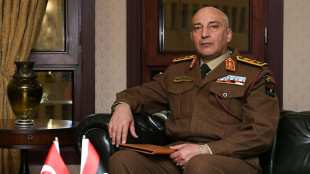
-
 Festive lights, security tight for Christmas in Damascus
Festive lights, security tight for Christmas in Damascus
-
Zelensky reveals US-Ukraine plan to end Russian war, key questions remain
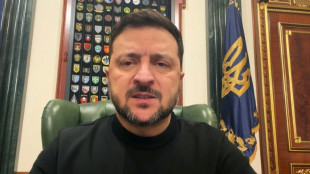
-
 El Salvador defends mega-prison key to Trump deportations
El Salvador defends mega-prison key to Trump deportations
-
Stranger Things set for final bow: five things to know

-
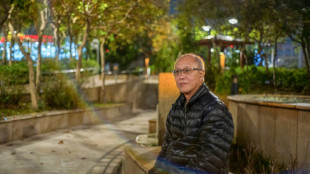 Grief, trauma weigh on survivors of catastrophic Hong Kong fire
Grief, trauma weigh on survivors of catastrophic Hong Kong fire
-
Asian markets mixed after US growth data fuels Wall St record

-
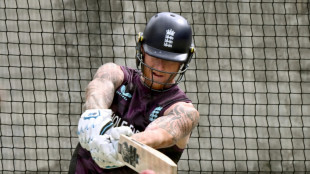 Stokes says England player welfare his main priority
Stokes says England player welfare his main priority
-
Australia's Lyon determined to bounce back after surgery
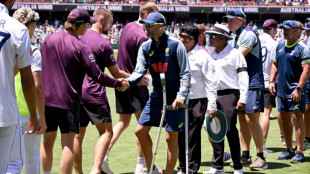
-
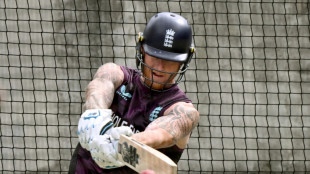 Stokes says England players' welfare his main priority
Stokes says England players' welfare his main priority
-
North Korean POWs in Ukraine seeking 'new life' in South

-
 Japanese golf star 'Jumbo' Ozaki dies aged 78
Japanese golf star 'Jumbo' Ozaki dies aged 78
-
Johnson, Castle shine as Spurs rout Thunder

-
 Thai border clashes hit tourism at Cambodia's Angkor temples
Thai border clashes hit tourism at Cambodia's Angkor temples
-
From predator to plate: Japan bear crisis sparks culinary craze
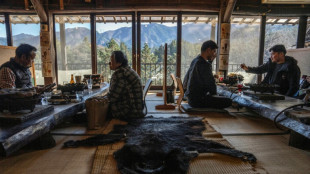
-
 Asian markets mostly up after US growth fuels Wall St record
Asian markets mostly up after US growth fuels Wall St record
-
'Happy milestone': Pakistan's historic brewery cheers export licence

-
 Chevron: the only foreign oil company left in Venezuela
Chevron: the only foreign oil company left in Venezuela
-
US denies visas to EU ex-commissioner, four others over tech rules

-
 SMX Is Being Valued By Monetizing Certainty, Not Sustainability Narratives
SMX Is Being Valued By Monetizing Certainty, Not Sustainability Narratives
-
SMX Is Earning Validation, and Valuation, Through Industrial Proof, Not Promises

-
 SMX's Valuation Is Anchored in Fixing a Structural Supply-Chain Failure Markets Learned to Ignore
SMX's Valuation Is Anchored in Fixing a Structural Supply-Chain Failure Markets Learned to Ignore
-
2026 Payer IT Outsourcing Outlook: Outcome-Based Managed Services, Production-Grade GenAI Governance, and Vendor-Risk Enforcement

-
 Gold's Quiet Molecular-Level Reckoning Is Happening Outside the Spotlight
Gold's Quiet Molecular-Level Reckoning Is Happening Outside the Spotlight
-
SMX Is Transitioning From Single Deployments to Supply-Chain Infrastructure

-
 Each SMX Partnership Opens a Market, the Portfolio Multiplies the Value
Each SMX Partnership Opens a Market, the Portfolio Multiplies the Value
-
CORRECTION: Nextech3D.ai Provides Shareholder Update on Krafty Labs Acquisition and Announces $321,917 CEO Investment


USAID cuts rip through African health care systems
As clouds gather and humidity rises across west Africa, whose annual rains bring an uptick of deadly, malaria-carrying mosquitoes, Musa Adamu Ibrahim, a nurse, is sitting at home, unemployed.
In Nigeria -- home to 30 percent of the world's annual 600,000 malaria deaths -- clinics that once served 300 people a day in the conflict-hit Borno state have abruptly shut down, Ibrahim and other laid-off workers told AFP, following the withdrawal of American funding by President Donald Trump.
"The clinics have been closed and (there are) no more free drugs or mosquito nets," said Ibrahim.
The sudden dismantling of USAID -- the country's main foreign development arm -- is unravelling health care systems across Africa that were built from a complicated web of national health ministries, the private sector, nonprofits and foreign aid.
As the effects of the cuts compound, the resulting damage -- and deaths -- are unlikely to end anytime soon: malaria cases will peak around the end of the rainy season, while threatened American cuts to global vaccine funding would likely be felt later in the year.
In the meantime, the ripple effects continue to spread: alongside laid-off workers, malnutrition clinics have shuttered doors in Nigeria.
Rattled supply chains mean drugs are at risk of being stuck in warehouses in Mali. Children are walking miles to reach care in South Sudan for cholera care and dying along the way, and refugee camps in Kenya are facing medicine shortages.
"People with resources will be able to go and get drugs... but the poorest of the poor, out in remote areas of Nigeria and other parts of sub-Saharan Africa, they're the ones who will be cut off," said Lawrence Barat, a former senior technical advisor for the US President's Malaria Initiative (PMI).
"They're the ones whose children will die."
- Malaria forecasts upended -
During malaria's seasonal peak, Ibrahim once saw clinics he worked at treat 300 patients a week. Fatima Kunduli, another laid-off aid worker in Borno, said her clinic was seeing 60 children per day for malnutrition and malaria care before it shut down.
As downpours progressively cascade across west Africa -- Nigeria's have just started, while Senegal's rains won't arrive until May -- countries that have made in some cases significant progress in stamping out malaria in recent decades will now be doing so without a major financial backer.
Forecasts developed by ministries of health across the continent to plan for the rainy season have deep holes blown in them, said Saschveen Singh, an infectious disease specialist with Doctors Without Borders in France.
The complex mix of funding sources in each nation -- from local governments to internationalnonprofits -- means US programmes worked differently in every country.
In Mali, seasonal malaria chemoprevention drugs given to young children won't have an issue coming into the country -- but American funds were crucial for coordinating their distribution, Singh told AFP.
Meanwhile, in the Democratic Republic of Congo, the USAID-supported PMI was the primary malaria drug and test provider to government health facilities in nine provinces.
"Suddenly, they'll just not have drugs, and it's going to be very difficult for other actors to step in," said Singh, adding her co-workers are "scrambling" to map out where gaps may arise.
- Cholera treatment scaled back -
In South Sudan, USAID-funded clinics have closed amid a cholera outbreak. Children are walking hours to the next closest treatment centre, with at least five dying along the way in the country's eastern Jonglei state, British charity Save the Children reported earlier this month.
In neighbouring Kenya's Kakuma refugee camp, which hosts more than 300,000 people, protests broke out in March when it was announced rations would be lowered, and doctors are running out of medicine.
"All the clinics around, you can get paracetamol. But all other drugs, no," one camp elder, who asked to remain anonymous, told AFP during a recent visit.
At Kinkole General Hospital, in Kinshasa, doctors were recently treating 23 mpox patients isolated in tents free of charge thanks to American support. But workers have no idea if that funding will continue, despite an outbreak that has infected 16,000 and killed 1,600.
"We're thinking a disaster is coming," said Yvonne Walo, an epidemiologist at the centre.
- Potential vaccine funding gap -
The hits to health care systems are set to keep coming.
Washington is reportedly considering pulling back its funding to Gavi, the organisation that procures vaccinations for the world's poorest countries.
Cuts would be almost guaranteed, with Gavi chief executive Sania Nishtar telling AFP that "this is too big a hole to be filled."
If confirmed, John Johnson, a vaccination and epidemic response advisor with Doctors Without Borders, expects programmes to start coming under strain later this year.
In Borno, whose governor recently warned of a resurgence of the Boko Haram jihadist group, Kunduli, the laid-off aid worker, said even with US funding the work was "overwhelming."
Now, "I could only imagine."
D.Cunningha--AMWN


